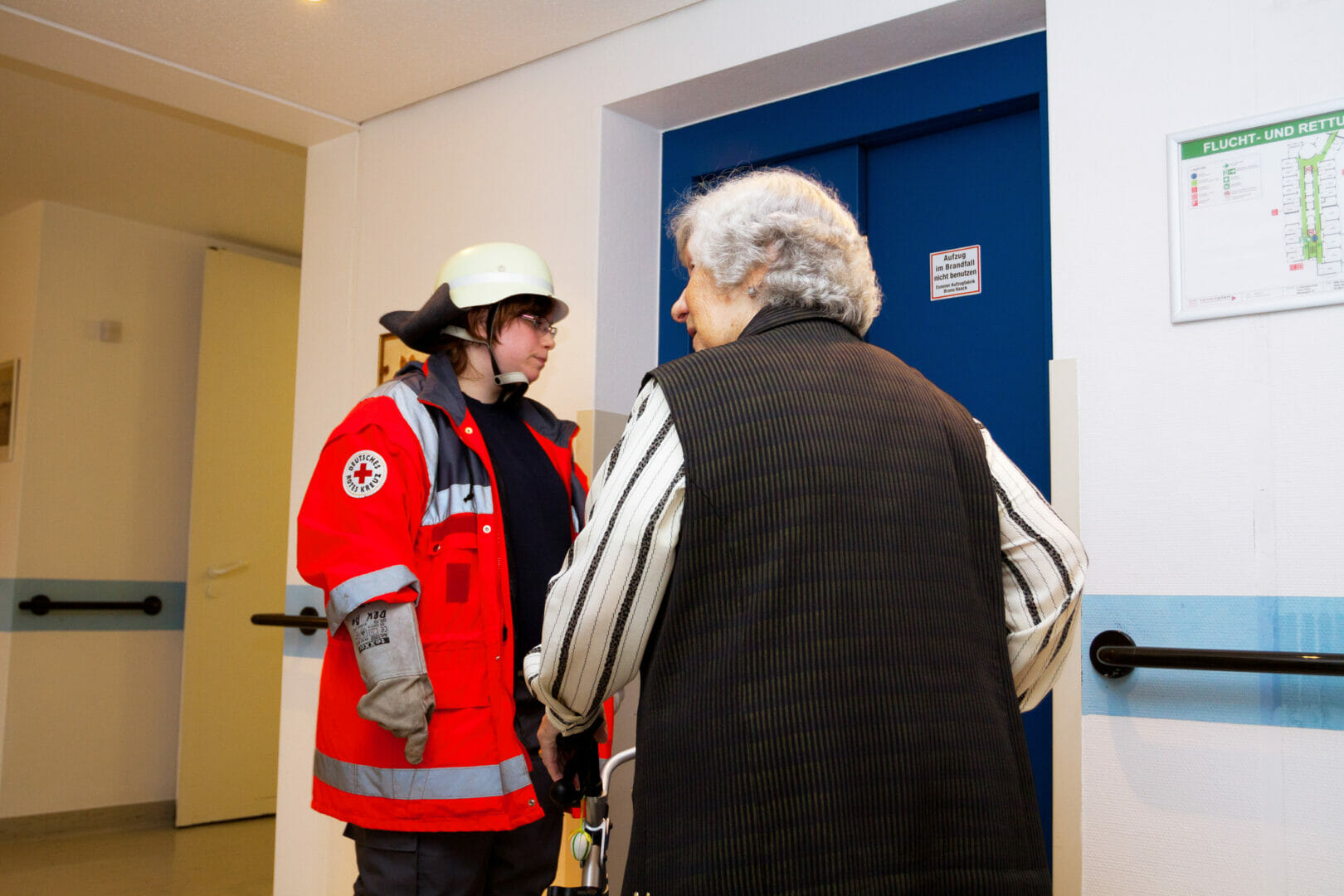Fires pose significant threats to people of all ages, but seniors, in particular, are at higher risk due to various challenges they may face. As a vulnerable demographic, seniors encounter mobility, sensory, and cognitive difficulties that can impede their ability to respond to fire emergencies swiftly and safely. The risk of dying in a fire was 2.2 times higher for individuals aged 65-74. Over a 10-year span from 2012 to 2021, the fire-related death rate for this age group saw a 36% increase. Given these alarming trends, it's crucial to delve into Essential Fire Safety Tips for Seniors, ensuring we address specific concerns and adapt to the unique needs of the elderly population.
Fire Safety Tips for Seniors: Prevention is Key
As we discussed earlier, seniors are at a higher risk during fires due to various challenges they may face. To safeguard this vulnerable population and reduce fire-related incidents, it is crucial to implement proactive fire safety measures. Prevention plays a pivotal role in ensuring the safety of seniors at home.
Regular inspection of the home for potential fire hazards
One of the most effective ways to prevent fires is to identify and address potential fire hazards within the home. Seniors or their caregivers should conduct regular home inspections to ensure a safe living environment. Here are some steps to follow:
- Check Electrical Outlets and Cords: Look for frayed or damaged electrical cords and replace them immediately. Avoid overloading electrical outlets and use surge protectors when necessary.
- Maintain Smoke Alarms: Ensure that smoke alarms are installed in key areas of the home, such as bedrooms and near the kitchen. Test the alarms monthly and replace batteries at least once a year.
- Clear Clutter: Keep living spaces tidy and clutter-free. Remove any items that may obstruct escape routes in case of a fire.
- Safe Storage of Flammable Items: Store flammable materials, such as gasoline, cleaning agents, and paints, in a well-ventilated area away from heat sources.
- Properly Store Matches and Lighters: Keep matches and lighters out of reach of children and away from places where they can be accidentally ignited.
Safe cooking practices and avoiding common kitchen hazards
Safe cooking practices are essential for fire prevention, especially in the kitchen where fires can often originate. Seniors should always stay in the kitchen while cooking, particularly when using stovetops or ovens. If they need to step away momentarily, it's crucial to turn off the heat.
Additionally, keeping flammable items like dish towels and oven mitts away from stovetops and open flames can significantly reduce the risk of fire. When cooking with hot oil or grease, seniors should exercise caution. If a grease fire occurs, they should never use water to extinguish it. Instead, it's safer to cover the pan with a lid or use a fire extinguisher.
To add an extra layer of safety, seniors may consider installing a stove shut-off device that automatically turns off the stove after a certain period of inactivity. These simple yet important safety tips can go a long way in protecting seniors and their homes from potential kitchen fires.
Proper use and maintenance of heating equipment
Heating equipment becomes essential for seniors during colder months, but it can also pose fire risks if not used and maintained properly. To ensure safety, seniors should keep space heaters at least three feet away from any flammable materials, such as curtains, furniture, or bedding. It's essential to turn off space heaters before leaving the room or going to bed.
Furthermore, seniors should have their chimneys and fireplaces inspected and cleaned annually to prevent the buildup of creosote, which can lead to chimney fires. When using electric blankets and heating pads, it's crucial to inspect them for any signs of damage before use and avoid folding or bunching these devices while in use.
Lastly, to avoid hazardous situations, seniors should refrain from using stovetops or ovens to heat the home. Following these guidelines can significantly reduce the risk of fire-related incidents during the colder months and keep seniors safe and warm.
The Importance of Smoke Alarms and Fire Extinguishers
Smoke alarms and fire extinguishers are vital for early fire detection and containment. Smoke alarms detect smoke, triggering an alarm to alert occupants. Fire extinguishers work by suppressing flames and come in various types, including ABC extinguishers for different fire types.
For effective fire safety, install smoke alarms on each home level, including bedrooms, and mount them on ceilings or high walls. Store fire extinguishers in accessible places, such as the kitchen and garage, at convenient heights for easy access by seniors.
Regular maintenance is essential. Test smoke alarms monthly, replace batteries yearly, and replace units every ten years. Check fire extinguisher pressure gauges regularly, inspect for damage or corrosion, and have them professionally serviced as recommended by the manufacturer.
Creating and Practicing a Fire Escape Plan
No one wants to think about a fire breaking out in their home, but being prepared with a well-thought-out fire escape plan can make all the difference in ensuring the safety of everyone in the household.
How to create an effective fire escape plan
Creating a fire escape plan is a proactive approach to fire safety tips for seniors, and it involves the following steps:
- Draw a Floor Plan: Start by drawing a floor plan of your home, including all rooms, windows, and doors. Identify two ways out of each room, if possible.
- Designate Meeting Points: Choose a designated meeting point outside the home, a safe distance away from the house, where everyone will gather after evacuating.
- Assign Responsibilities: Assign specific responsibilities to each member of the household. For instance, one person can be in charge of helping elderly family members, and another can be responsible for calling emergency services.
- Practice Regularly: Regular practice is crucial to ensuring that everyone knows what to do during a fire. Conduct fire drills at least twice a year, and practice different scenarios, such as escaping from different rooms or using different exit routes.
Importance of considering mobility issues in the escape plan
For seniors with mobility challenges, creating a tailored fire escape plan is essential. Consider the following factors:
- Identify Obstacles: Take note of potential obstacles in the home that may hinder quick evacuation. These could include stairs, narrow hallways, or cluttered areas.
- Develop an Exit Strategy: If certain exits are not accessible for seniors with mobility issues, identify alternative routes or consider installing mobility aids like ramps or stair lifts.
- Communicate with Caregivers: Seniors who have caregivers or family members living with them should communicate their needs and preferences during a fire emergency. Caregivers should be aware of the best ways to assist seniors during evacuation.
Technology and Tools that Can Help in Fire Safety
Advancements in technology have revolutionized fire safety, particularly for seniors. Smart smoke alarms offer added protection by sending alerts to smartphones, even when seniors are away. Fire sprinkler systems quickly extinguish fires, giving more time for escape. Fire blankets provide a simple way for seniors to smother small fires safely.
Caregiver alert systems, like personal emergency response systems (PERS), are crucial for seniors living alone or with mobility challenges. These systems can summon help in emergencies, including fires, ensuring additional safety and peace of mind.
To enhance fire safety, consider automated home security systems that alert emergency services. Integrating fire safety devices into smart home systems enables remote monitoring and real-time updates for seniors and caregivers.
Navigating Fire Safety Tips for Seniors
The rise in fire-related deaths among seniors underscores an urgent need to bolster fire safety for this demographic. Seniors face unique challenges, from mobility issues to sensory impairments, making fire preparedness vital. While technology offers tools like smart smoke alarms and caregiver alert systems, they are most effective when combined with preventive habits like regular home inspections and safe cooking practices. A tailored, regularly practiced fire escape plan is the linchpin. With a holistic approach, we can create a safer environment for our senior community to avoid fire hazards.





